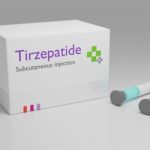Hot Flashes During Menopause May Serve as Early Alzheimer’s Risk Indicator

A groundbreaking study suggests that menopausal women who frequently experience hot flashes during sleep could be at an increased risk of developing Alzheimer’s disease. Conducted by researchers from the University of Pittsburgh and the University of Illinois, this study also reveals that the risk of Alzheimer’s rises with the frequency of hot flashes.
While the findings are compelling, it’s important to note that this research is currently being presented at the annual meeting of The North American Menopause Society in Philadelphia and has not yet undergone peer review for publication in a scientific journal.
Alzheimer’s disease disproportionately affects women, with two-thirds of individuals diagnosed with this degenerative neurological condition being female. One suspected contributing factor is the decline in estrogen levels that occurs after menopause. However, the exact cause of Alzheimer’s remains elusive.
Hot flashes have long been associated with various cognitive and neurological changes. Notably, they have been linked to diminished memory performance and alterations in brain structure, function, and connectivity.
Dr. Rebecca Thurston, a study author and the director of women’s bio-behavioral health at the University of Pittsburgh Department of Psychiatry, explained the significance of these findings: “There has been a convergence of findings showing that hot flashes – particularly when objectively measured and occurring during sleep – are associated with poorer memory performance as well as greater markers of small vessel disease risk in the brain, which has been linked to future dementia. This study further adds to that literature linking hot flashes – and particularly sleep hot flashes — to markers of poorer brain health.”
Remarkably, this research represents the first attempt to establish a direct connection between hot flashes and newly identified biomarkers associated with Alzheimer’s disease.



